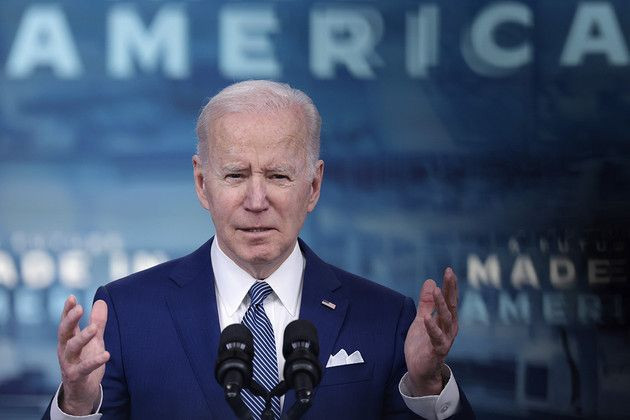With inflation at a 40-year high, President Joe Biden on Wednesday signed an executive order instructing the Treasury and Commerce Departments and corresponding agencies to report back to him on the future of money as the country explores if it should create its own crypto-like U.S. Central Bank Digital Currency.
The “digital dollar” would have to be regulated by central banks, meaning the Federal Reserve could issue monetary policies around issuance rates and address any inflation concerns, CBS News reported.
Senior Biden administration officials noted that to date, more than 100 countries are working into issuing their centralized digital currencies. However, there are concerns that if the U.S. project gets the green light, no one will be spending digital dollars soon.
“We’ve got to be very, very deliberate about that analysis because the implications of our moving in this direction are profound for the country that issues the world’s primary reserve currency,” an unnamed official said per the Daily Beast.
Following the official announcement of the order, Bitcoin had risen by over 9.5 percent over the previous day, according to Coinbase. It also comes at the back of harsh sanctions the U.S. and its allies imposed on Russia amid the invasion of Ukraine.
In a statement, Treasury Secretary Janet Yellen said the order supports “responsible innovation that could result in substantial benefits for the nation, consumers, and businesses."
Moreover, the exploration could deal with the risks related to illicit finance, thus helping consumers and investors prevent threats to both the financial system and the economy.
Meanwhile, the new executive order also directs other agencies to look into the digital dollar’s negative and positive impacts on privacy, security, and climate. An enormous amount of electric power is required to validate various crypto transactions.
According to the Natural Resources Defense Council, a single bitcoin, which is currently worth around $42,000, has the same carbon footprint as 330,000 credit card transactions.
Biden is also taking steps in bringing factory jobs back to the U.S. as employers moved jobs abroad to rely on a cheaper workforce, helping them lower their costs, according to the Associated Press. Biden’s plans would take several years to implement.
The president has also argued that globalization is fueling higher prices as outsourcing proponents failed to consider the costs of increasingly frequent global supply chain disruptions, including the COVID-19 pandemic and the ongoing Russian invasion of Ukraine, which severely sent oil prices flying.

© 2025 Latin Times. All rights reserved. Do not reproduce without permission.





